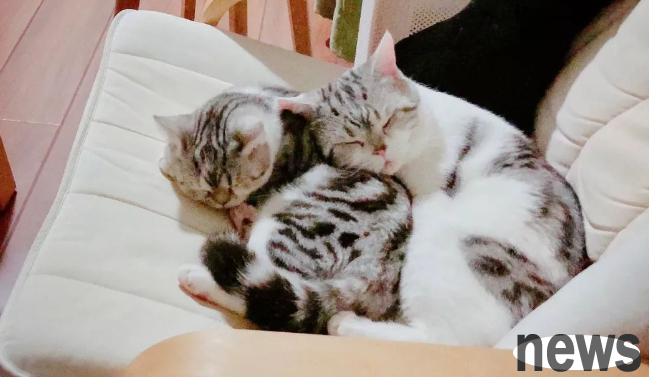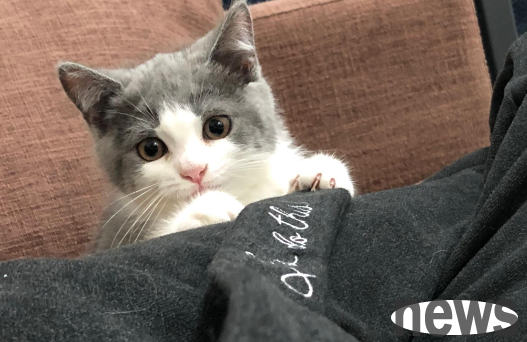From the origin of wild cats, a sick cat is easily hunted. It is impossible for cats to take the initiative to tell cat slaves that they feel uncomfortable there, and they are proficient in hiding these signs. Therefore, the owners of domestic cats need to conscientiously fulfill the responsibilities of qualified guardians. Any movements, behaviors or attitudes that are different from the cat's daily life are a reminder: it may have something wrong!

Cat owners usually do not notice the subtle changes that are happening to the cat, and only realize the severity of the problem when the abnormality is to a certain extent and the cat has obvious symptoms. In fact, the earlier you discover, the earlier you check and interventional treatment, the greater the chance of successfully solving the problem, and it can also save you the expensive cost of seeing a veterinarian when your cat is in serious condition. The following 10 cat signs need to attract the high attention of cat slaves!
1. Decreased mental and vitality
Look at the cat's eyes to judge the cat's age
If your cat suddenly refuses to participate in a normal game behavior in the past, or looks listless, extremely tired, drowsy, and not interested in the surroundings, this is a sign that it is uncomfortable.
2. Changes in appetite
If your cat suddenly starts to eat voraciously, or does not eat it, this all prompts a serious problem. For cats, complete anorexia (not eating) is particularly dangerous and may lead to cat liver fat deposition, a potentially life-threatening liver disease that occurs within 24-48 hours of anorexia, so when it has a bad appetite, you need to quickly check the cause.
3. Drinking polyuria
Cats Drinking polyuria is a sign of kidney disease or diabetes. Such as increased urine output, abnormal urination movements and frequency, they all indicate a precursor to urinary system disease.
4. Changes in behavior
If your cat starts to like to hide, refuse to play, or becomes aggressive for no reason, these changes may be due to a behavioral problem (such as stimulation of environmental substances, frightening, etc.). There are also changes in behaviors such as limping of limbs, difficulty walking and standing or lying down, etc. that need to attract your high attention.
5. Vomiting/diarrhea
Occasional vomiting or diarrhea in cats may not attract the attention of cat slaves. This may be caused by irritation of the intragastric hairballs, allergies, etc., transient, but persistent vomiting and diarrhea suggest serious gastrointestinal problems.
6. Refusal to use cat litter box
If your cat suddenly refuses to use cat litter box, excretes in other places, eliminating a behavioral or medical disease problem should be the first step for you. The reasons why cats urinate in other places in the home are as follows:
► Cystitis, urination reflex disorders and other diseases;
► Dislike of cats such as uncleaning of cat litter box, such as not being cleaned in time, dirty and messy;
► Cats are afraid to use cat litter box because they may be placed in a place that is easily disturbed;
► Other cats have used cats to use the litter box to go to the toilet or have the intimidation impression of cats near the litter box;
► Newly arrived cats, they try to mark and use all the places in their homes as their territory.

7. A sudden weight gain or weight loss in a cat is a worrying sign that may suggest that it has an underlying disease and needs to be consulted with a veterinarian.
8. The hair is dull and sheds severely. Excessive scratching and licking and biting behaviors
Cats have severe hair loss. The dull color of the hair indicates nutritional problems. Excessive self-scratching and licking and biting behaviors indicate that the cat suffers from allergic, parasitic or fungal skin diseases.
9. Unpleasant body odor (such as abnormal changes in mouth, nose, ears, reproductive organs and skin, etc.)
If a cat's unpleasant body odor comes from the cat's mouth, ears, genitals or skin, this suggests that your cat may have dental diseases, infections, skin diseases or more serious diseases (such as renal failure).
10. Changes in voice
If your cat's voice is abnormal, such as the quiet cat becomes like to scream, and the cat that turns out to be like to scream becomes quiet, this is worthy of the attention of cat slaves.